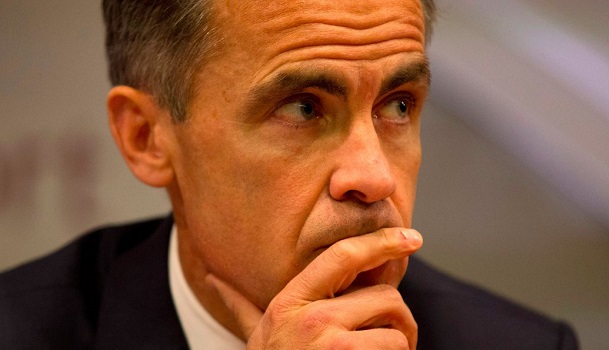
Bank of England makes a capital mistake
The Bank of England is right to do everything in its power to support the U.K. economy following the vote to leave the European Union. Weakening the finances of the country’s banks, though, is the wrong way to go about it.
Governor Mark Carney has announced that, among other measures, the BoE will let banks operate with less equity than previously planned. The idea is to make banks more willing to lend, by relieving them of the concern that new loans would bring their equity levels below regulatory minimums.
In principle it makes sense to require banks to raise their capital ratios when the economy is strong, then let them decline a bit when it’s weak — what regulators call a countercyclical capital buffer.
It’s vital, though, that capital is built up sufficiently when conditions allow, so that when the rules are relaxed, banks have enough to weather any downturn. Right now, they don’t. The BoE’s efforts to increase requirements since the 2008 financial crisis have fallen short.
British banks have been allowed to return a lot of capital to shareholders in the form of dividends and stock buybacks. According to data compiled by Bloomberg, the total from 2009 through 2015 for the five largest U.K. banks was 63 billion pounds.
That would have been enough to boost capital by more than 1 pound for every 100 pounds in assets. Today, they have a little over six pounds in equity per 100 pounds in assets -- far short of what’s required to avoid distress in a severe crisis, as the banks’ beaten-down stock prices suggest.
Why Britain is Leaving the EU
Banks with more equity would be better equipped to support the economy through the difficult times that Brexit is likely to entail. Bear in mind, equity isn’t money taken out of circulation: It’s stable funding that banks can use to make loans.
A recent paper from the Bank for International Settlements shows that well-capitalized banks tend to borrow on better terms and lend more throughout the cycle — which makes central banks’ stimulus efforts more effective.
During and after the 2008 crisis, despite falling short of what was needed, the U.K. was ahead of other governments in understanding the importance of capital for a healthy banking system.
If the Bank of England wants to show that it has the resolve to protect the economy at a time of great uncertainty, building on that reputation would be better than instituting a quick fix that will make them more fragile.
Credit:Bloomberg